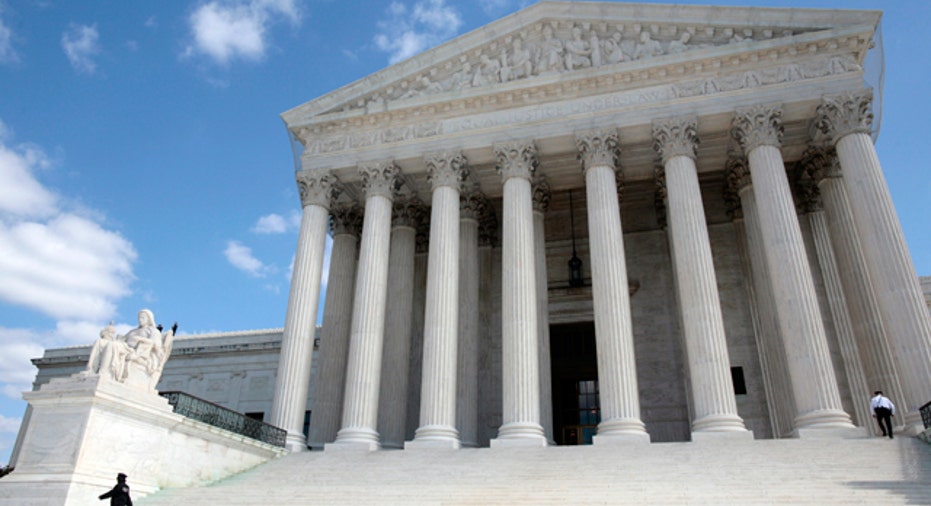Supreme Court Strikes Down FCC's TV Profanity, Nudity Rules

The U.S. Supreme Court on Thursday ruled against the federal government's regulation of broadcast profanity and nudity, saying the Federal Communications Commission had not given fair notice of a change in policy.
The unanimous high court ruling, written by Justice Anthony Kennedy, declared that the FCC's standards were vague as applied to the specific broadcasts in the case. It did not decide the larger question of whether the indecency policy violated constitutional free-speech rights.
Under the changed policy which dated to 2001 and was amended in 2004, broadcasters can be fined for airing a single profanity blurted out on a live show or for brief nudity. Government lawyers said it covered the "F-word" and the "S-word" that denote "sexual or excretory activities," respectively.
The justices threw out a lower-court ruling that struck down the policy on speech grounds and the justices said several options are before the commission, including modifying its policy.
The case involved 2002 and 2003 awards shows on News Corp's Fox television network when singer Cher blurted out an expletive and actress Nicole Richie used two expletives. The FCC said the network violated its indecency rules.
The case also involved a seven-second shot of a woman's nude buttocks on a 2003 "NYPD Blue" episode on Walt Disney Co's ABC network that led to $1.21 million in fines.
The FCC already had launched its indecency crackdown when pop star Janet Jackson briefly exposed her bare breast during a 2004 broadcast of a halftime show for the Super Bowl football game, drawing half a million complaints.
Kennedy in the ruling based the decision on the constitutional due process requirement, saying that broadcasters had to be given fair notice of the policy and the restrictions.
"A fundamental principle in our legal system is that laws which regulate persons or entities must give fair notice of conduct that is forbidden or required," he wrote in the 18-page opinion.
He said there was no need to address the constitutional free-speech issue under the First Amendment.
The FCC can impose fines of $325,000 on each station that airs indecent material, including images and words, between 6 a.m. and 10 p.m.
Critics like the broadcast industry said the policy had been applied inconsistently, with the FCC allowing the television broadcast of profanity in the World War Two movie "Saving Private Ryan" and of nudity in the movie "Schindler's List."
The FCC policy applies only to broadcast television and radio. Neither cable nor satellite channels are subject to FCC content regulation.
The Supreme Court ruled in 2009 on narrower grounds that the FCC's indecency policy was a rational and legally permissible use of the FCC's administrative powers, but did not reach the free-speech issue at that time.
Justice Sonia Sotomayor did not take part in the latest ruling. She considered the dispute previously as a U.S. appeals court judge in New York.
The Supreme Court case is FCC v. Fox Television Stations and FCC v. ABC Inc, No. 10-1293.



















